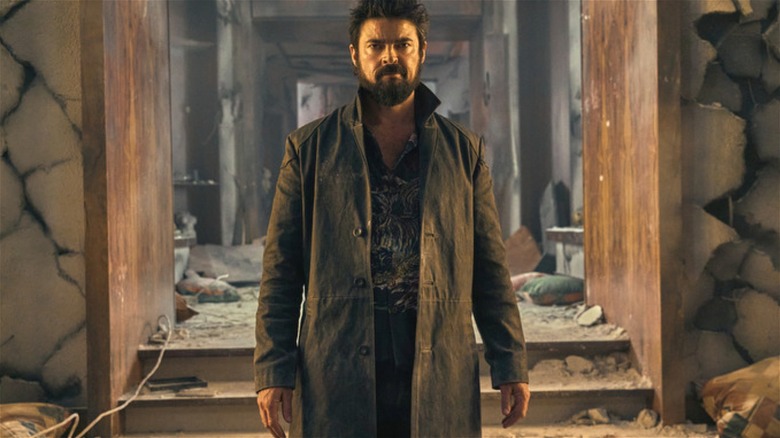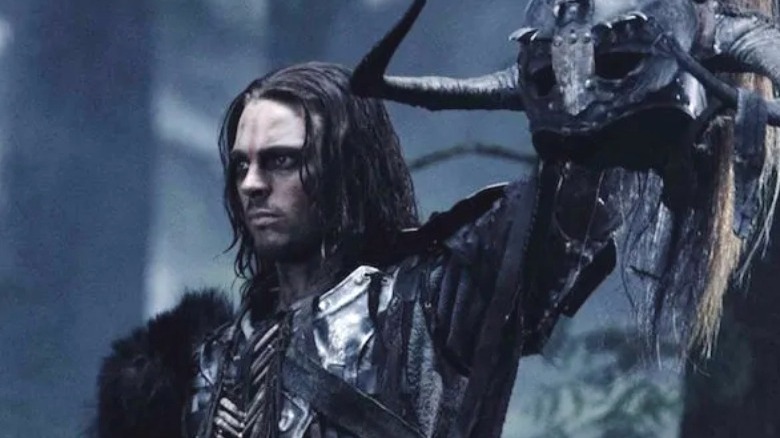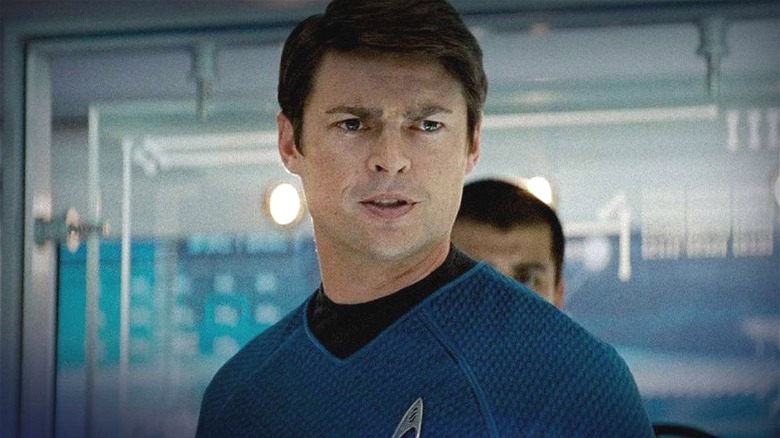Karl Urban Always Starts His Characters From Scratch
One might think that Karl Urban starred in his first fantasy role when he played Éomer in Peter Jackson's "Lord of the Rings" trilogy, but that is not the case. Although Jackson's trilogy was Urban's first high-profile fantasy role, the actor kickstarted his career with the role of Cupid in the television series, "Hercules: The Legendary Journeys." He also appeared in the show's popular spin-off series, "Xena: Warrior Princess," in which he played the role of Julius Caesar. Since then, Urban has come a long way in terms of playing key roles in high-fantasy and sci-fi offerings, including "Pathfinder," the "Star Trek" reboots, "The Chronicles of Riddick," and "Doom."
How does Karl Urban approach his roles when preparing for them? In a 1998 interview, right after the success of "Hercules" and "Xena," Urban talked about his approach to characters, which has since developed into a core principle for his work. A firm believer in "starting from scratch," Urban explained that building the foundation for his characters is his favorite part of the preparation process, as it allows him to re-contextualize crucial aspects of the role in relation to what's written in the script.
While Urban gives examples of his roles as Cupid and Caesar to explain his creative process, let us also look into how the actor approached major roles throughout his career using the guiding philosophy mentioned in the interview linked above.
Finding the truth of the moment
Every character that an actor takes on has a story, in the sense that there's some sort of essential life experience and accumulated worldview that informs who they are. This might directly affect the way they speak or carry themselves, and also explain the narrative choices they make within the ambit of the story. Urban said that the process is akin to "playing Sherlock Holmes to a certain extent," as a lot of deduction goes into fleshing out a role:
"I believe in starting from scratch with each character...What can I deduce about this character from what's written on this page? Then I take it to a physical level, how would this character walk and move and talk...Take for example Cupid and Caesar. They have a totally different way of moving, of talking. Caesar is very much stiff in the shoulders, he's a presence. Cupid is more free. My favorite part of the whole process is discovering things about these people."
Discovering fresh aspects of a character is an enjoyable process for Urban, and he also believes that it is important to do away with any preconceived notions, as "they choke you as an artist." Preconceptions can narrow the scope of playing a character such as Ghost in "Pathfinder," in which he played the sole survivor of a Viking warrior tribe. Although historical accuracy and narrative considerations did not play a significant part in the brutal music video-esque "Pathfinder," Urban played Ghost with dedicated zeal by prioritizing the physicality of a man fueled by revenge. Urban also applied the metrics of fleshing out a role when playing the fan-favorite Skurge in "Thor: Ragnarok," a performance that was brief yet memorable among a star-studded cast, which is saying something.
Keeping an open mind
When Urban took up the mantle of playing Leonard McCoy in 2009's "Star Trek," he told GQ about the pressures of playing a beloved character while making it his own. Urban explained that while he was acutely aware of the legacy of the role, previously played by DeForest Kelley, it was crucial for him to not "slip into some kind of imitation," as it would greatly limit his understanding of a well-loved, rebooted character. This led Urban to keep an open mind when it came to playing McCoy while being respectful of the weight that the character held in "Star Trek" history.
I think a conversation about Urban's approach to characters is incomplete without a mention of his rendition of Billy Butcher in "The Boys," a character that already has a fleshed-out arc in Garth Ennis' comics series. As the show takes a slightly different approach to Butcher by investing him with a lot of complexity/gray areas, Urban gets the opportunity to swing between the ideas of the proverbial "hero" and the "villain." "Butcher has both the tendency to be the villain and the hero, which makes him a hell of a lot of fun to play," Urban told GQ, while highlighting the interesting internal conflict that perennially drives the character.
Another vital aspect of Urban's artistic process is making tweaks to a role based on how other characters interact with his own as the narrative evolves. Urban specifically mentioned how much he learned from observing Viggo Mortensen play Aragorn on the set of "The Two Towers," and he described it as a "huge lesson" for him, as it re-instilled his confidence in the creative process.
An accumulation of such creative principles helped Urban forge a successful career, and he still has a long way to go.


